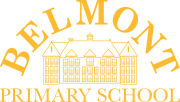Science
Science Vision
We aim to ensure children at Belmont enjoy science and see its’ relevance in the world. It is our intention to promote a love of investigating to ask questions and solve problems about nature and processes to produce the scientists of the future.
Intent
It is our intention for children:
- To be taught the National Curriculum Science content through high quality teaching.
- To ensure practical investigations are used wherever possible.
- To provide a science curriculum accessible to all children at Belmont.
- To ensure the progression of scientific knowledge and working scientifically skills as children move through the school.
- To be aware of real life links to science during their science learning.
- To be inspired to ask questions and use their science learning to solve problems.
- To make links between their science learning and other curriculum areas.
Implementation
This will be implemented by:
- The subject lead has had the opportunity to work closely with Y1, 2, 4 and 5 teachers to develop the Belmont Science curriculum over the last 4 years. Links with other subject areas have been incorporated. The content is reviewed and updated with new online resources and practical investigation opportunities shared with class teachers to improve it as appropriate.
- Each science lesson includes a knowledge and a working scientifically LI, to focus the learning. Working scientifically skills in the 5 areas (observation over time, pattern seeking, identifying, classifying and grouping, comparative and fair testing, research using secondary sources) are mapped out across the year groups to provide staff with information to enable progression.
- Learning is differentiated according to children’s learning needs. This is continuously being developed.
- Children are made aware of links to the real life application and relevance of science through a range of problems solved during lessons and learning about scientists from past to present linked to the unit of study.
- STEM week provides opportunities for extra science, not included in the NC to be included. Parents, STEM ambassadors and external providers are involved to provide exciting extra-curricular experiences. Subject leads work together to provide cross-curricular links. Science and scientific activities are promoted for parents during this exciting time to help increase the science capital of Belmont children.
- Outdoor learning in the grounds (wilderness area and kitchen garden), visits and the opportunity to join a science club provide scientific experiences in a range of settings.
- Subject display boards and assemblies enable important messages/ focus areas eg careers in science to be promoted to the whole school.
- The children are encouraged to think about their own learning using ‘rate my knowledge’ grids at the beginning and end of each unit, this includes understanding of key vocabulary.
- Staff inset occurs when necessary to introduce new initiatives, feedback important information and resource updates.
Impact
The impact of this is monitored through:
- Termly planning from each year group can be accessed and compared in a joint curriculum folder- the subject lead reviews this termly.
- Book looks provide evidence of attainment, coverage and differentiation-the subject lead and senior leadership team are involved.
- At the end of each unit of study teachers complete assessment grids to record if children are working towards, expected or greater depth for knowledge and working scientifically-subject lead monitors. (KS2 use Switched on science assessments when appropriate to assist their judgements).
- Pupil voice questionnaires provide information about key aspects of the children’s viewpoint of science, their learning and events they have experienced. The subject lead uses this information for the future development of the subject.
SCIENCE GALLERY
Resources
Here are some useful links if you would like help your child with science at home.
KS1 http://www.bbc.co.uk/education/subjects/z6svr82 Includes interactive learner guides and video clips.
KS2 http://www.bbc.co.uk/education/subjects/z2pfb9q Includes interactive learner guides and video clips.
http://www.oum.ox.ac.uk/thezone/index.htm Resources for animals, rocks, minerals and fossils, and insects.
http://www.sheppardsoftware.com/science.htm Games linked to different areas of science.
http://www.crickweb.co.uk/ks1science.html look in KS1 and 2 to find unit appropriate games/ activities.
https://www.everyschool.co.uk/science.html sister website to the above.
https://www.topmarks.co.uk/Search.aspx?Subject=26 links to a variety of interactive games.
https://www.childrensuniversity.manchester.ac.uk/learning-activities/science/ want to learn more about topics we cover in primary school, click on chosen area and find out more.
https://www.exploratorium.edu/science_explorer/ want some fun scientific experiments to do at home, try this!
Policy
Please refer to our Policies and Procedures page.

